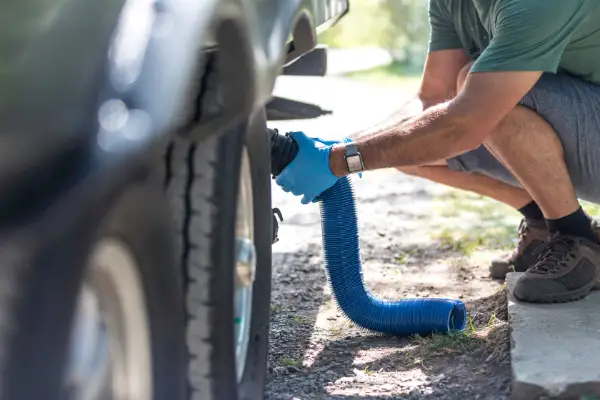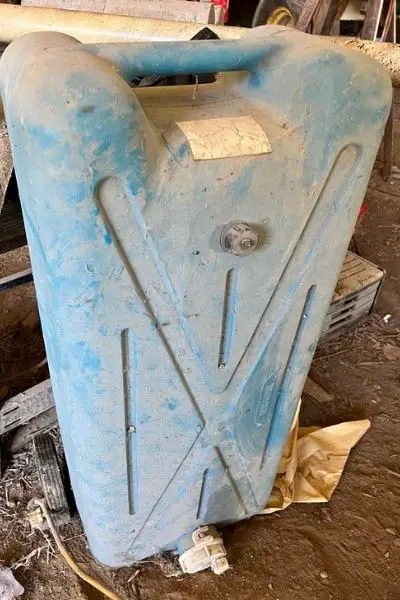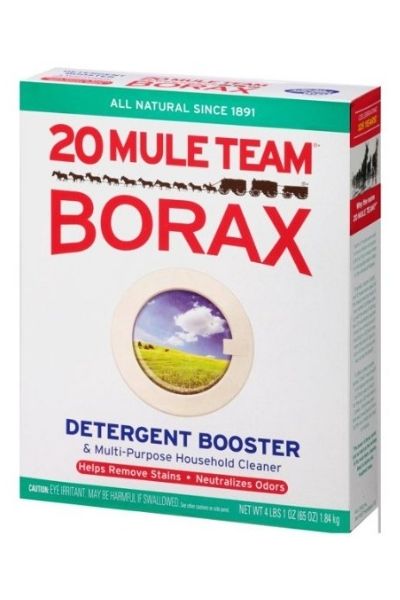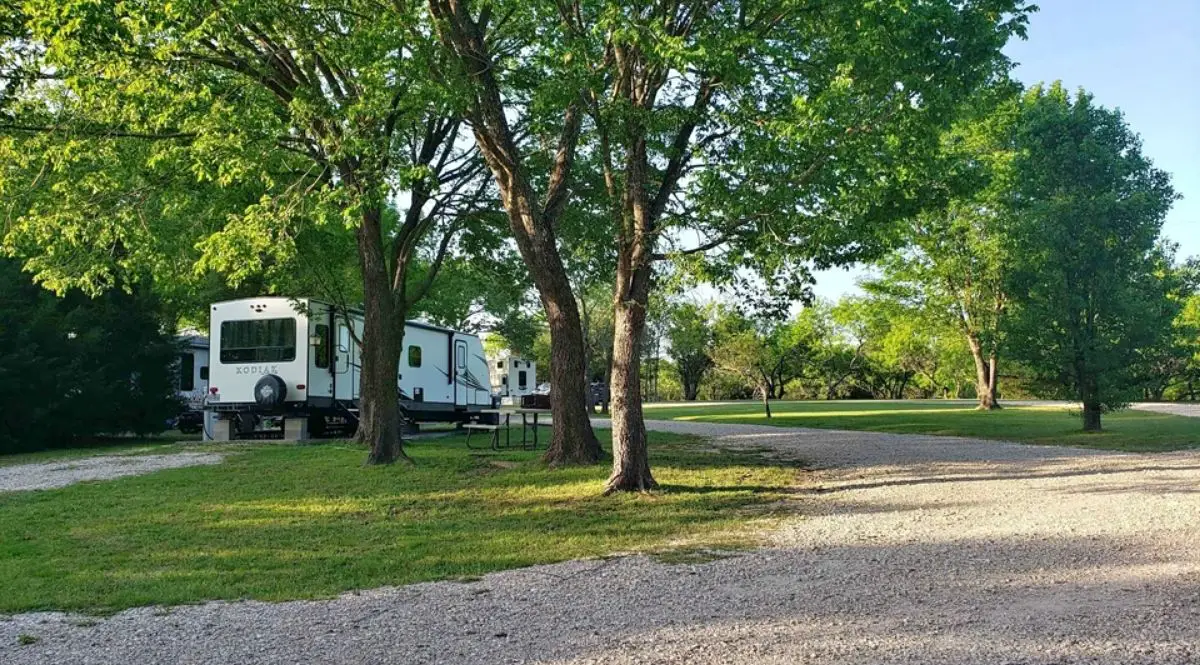A stubborn sewer smell is the result of a bacterial imbalance in the black or grey tanks. Bad bacteria arise in the grey tank when left empty for too long, in the black tank, it is due to not having enough water to break down solid waste.

This is because the fundamental role of an RVs waste tank is to drain not hold. They don’t dissolve materials on their own as a septic tank would. Without substantial water in the black tank to break down solids, coupled with a lack of regular drainage, waste accumulates and becomes a bacteria-harboring sludge that remains even after emptying the tank.
It’s easy to assume that flushing will add enough water to combat this, but this is not the case as RV toilets use very little water. Many RVs are designed to drain some of the greywaters from the sink into the black tank to make up for this discrepancy. However, this fails when the grey tank is always empty due to excessive flushing, or the drainage valve is left open while the RV is hooked up to a sewer.
For RVs with this feature, leaving the grey tank empty makes it far more likely for the black tank to carry odorous bacteria. Yet, the grey tank can have its own bacterial imbalance separate from that of the black tank. Even for an RV that does not drain grey water into the black tank, a grey tank left empty for too long is still a source of offensive odor.
LATEST VIDEO
Greywater: The Other Source Of The Septic Smell
The grey tank can create an odor even stronger than the black tank as its imbalances are easier to overlook. Food, grime, and mold are all very susceptible to building up within the tank when it is left empty for too long. Greywater is sourced from the sink, shower, and washing machine. They provide different odor-causing elements that are less obvious than that of the black tank.

Dishes are the biggest culprit as food remnants are washed down the sink daily. These materials may not successfully drain from the tank when it is being emptied, causing rotting food to build up. That buildup carries anaerobic bacteria that feed off human waste and byproducts such as the contents carried down the shower drain.
In doing so, the bacteria release hydrogen sulfide which has a very offensive smell. Buildup in both the grey and black tanks disrupt the ideal bacterial composition for proper waste management. The strong smell this causes can be dealt with by using a series of methods that focus on identifying and maintaining the ideal balances needed for odor management.
The Solution To Rid The Bad Stench In Your RV, Now!
The solution is to take steps to both remove the source of the smell from the tanks and remove any lingering scent from the vehicle by use of ventilation. For both the grey and black tanks, a buildup of material fostering a bacterial imbalance is a major source of the odor.

This buildup can be quite stubborn; flushing the tanks with water alone will not always do the trick. Instead, add a moderate amount of borax with a few gallons of water before driving. As the RV is moving this mixture will slosh around the tank disrupting the buildup so that it flows out easily when the tank is emptied.
This solution is effective against the grime in the tanks but to tackle the bacterial problem, introduce the right bacteria. This may sound counterproductive but using healthy bacteria to break down the waste is a staple of water treatment in major plants around the world. This study published in the Journal of Applied Sciences showcases the benefit it has in treating greywater.
The odor-causing bacteria in an RV’s tanks in anaerobic. What you want instead is aerobic. Aerobic bacteria are responsible for decomposition in soil, converting waste into carbon dioxide. Promoting a healthy bacterial balance in the tanks is as simple as using some of the many treatments designed to accomplish this. A few of them are mentioned in the article RV Toilet Paper VS Septic Safe VS Marine: What Is The Difference?
These methods will remove the source of odor within the tanks. The roof vents remove the smell left in the RV by circulating outdoor air to keep the interior smelling fresh. When using the bathroom vent, it is important to keep the room closed as this will help the vent create a natural vacuum preventing any smells from spreading throughout the RV.
Additionally, open windows assist in ventilation. While these methods are all great ways to remove lingering odors from your RV, ensuring that bacterial imbalances do not return is the best way to keep your RV smelling fresh and lively.
How Can You Prevent Future Sewer Smells?
Keeping sewer smells from becoming a problem is done by preventing buildup using proper emptying habits, being mindful of what enters the tanks, and ensuring that there is a beneficial bacterial balance in place prior to adding waste. For the black tank an extra quarter of a gallon when flushing can go a long way, and the more the better.

For the grey tank, using a drain mesh in the sink is a great way to keep out food items. After emptying the tanks, add healthy bacteria to promote an odor-free balance. When using a product such as a unique camping marine’s holding tank treatment, it is important to add water to the tank alongside it as the aerobic bacteria need the oxygen within the water to break down waste.
Another odor preventing method is baking soda and vinegar. For the grey tank, a moderate amount would be used with water while more would be needed for the black tank. Be sure to use enough extra water with the mixture to nearly fill the tank and empty it all to ensure everything flushes out. The Article How do RV Bathrooms Work goes further into the best ways to empty the tanks.
Ridding your tanks of buildup and preventing sewer smells from returning to your RV is very important. However, if the odor problem in your vehicle can’t quite be described as sewage, then it may not be an issue with your tanks. A rotten egg smell is another offensive odor that often affects RVs and if that is the situation for you, then let’s explore why that is the case.
Why Does My RV Smell Like Rotten Eggs?
A rotten egg smell is most commonly the result of an adverse reaction creating hydrogen sulfide gas within the RV’s waste tanks or water heater. In rare circumstances, it may be the result of a propane leak.

A water heater can produce this smell when the anode rod interacts with surrounding bacteria. The anode is meant to preserve the tank from water and heat damage. However, when bacteria begin to eat away at the materials contained by the rod, they produce hydrogen sulfide gas which is notoriously known for smelling like rotten eggs.
The same gas is produced by anaerobic bacteria in the waste tanks. As annoying as these odors can be, they are inconsequential. A propane leak on the other hand is a far more dangerous issue.
Propane is undetectable by smell. To make potential leaks more noticeable propane suppliers add a rotten egg smell to the gas. If that smell begins to spread in your RV and the tanks and water heater are not the culprits, immediately close the propane gas in the vehicle until the source of the leak can be found. Propane is highly flammable and inhaling it may lead to asphyxiation.
The smell of rotten eggs should never be overlooked, while sewer smells are incredibly frustrating, they are always harmless. However, a rotten egg smell can be an indication of more immediate danger. Knowing its potential causes is important not just for maintaining comfortable conditions in your RV, but safe conditions as well.




